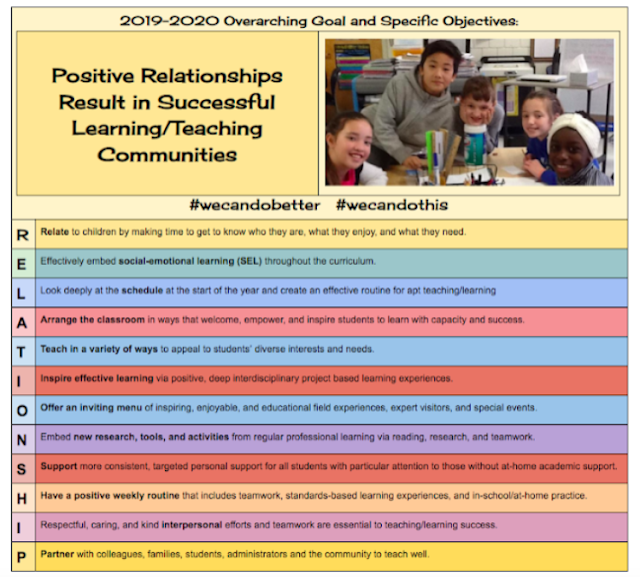Schools are busy places, and in some cases people are working for you and in other situations people are working against you. Sometimes same people both work for and against you dependent on what it is that you need and the groups those people belong to.
When people work for you, they are always working with you to try to meet mutual goals--they share in your desire to teach every child well. When people work against you, they continually put up barriers to good learning, access, and acceptability. In many ways, these barriers acts as hurtles making teaching more of an arduous track race than the good, deep work that it is meant to be.
In most cases, I see the barrier-builders as those who don't want to make more work for themselves, those that don't trust teachers, and those that don't want to share any power that they have. These barrier makers use long forms, extensive vetting, arduous processes, time when educators are busy with children for decision making, and other power-moves that create great barriers to doing the good work possible.
Where I work some of those barriers including the arduous systems to utilize good tech, purchase needed materials, and modernize teaching/learning programs in some areas. These processes in many ways are not teacher friendly, timely, or easy-to-use thus creating barriers to making the teaching and learning more modern, deep, research-based, and meaningful.
Where I work there are many structures in place that do work for us, structures that support the best possible service to students and development of the learning programs. Some of those processes include the following:
- Multiple state programs that support elevating the teaching and learning
- Summer work stipends and support for program development
- Can-do, supportive attitudes by multiple colleagues who support efforts that support students such as lending computers, providing needed counseling, program problem-solving, attendance at professional events, fair working conditions/salaries, and more.
- Welcoming learning environments
- Lots of family and community support for quality education
Educators have to always consider if they are working for their students or against their students. Having a servant/partnership leadership model in place helps educators to continually partner with students and serve students and families too. This is an ideal way to approach teaching and learning--when students and families know that you are working with and for them, the sky's the limit for what you can achieve.
Friday was a tough day in the school house. It felt like some were working against the good work possible--there was uncomfortable struggle that I've been thinking about for the past twenty hours or so. What could have been better?
First, the issue at hand needed a deeper problem-solving approach sooner than later. While our team had attempted many times to reach resolve with the issue, in hindsight, we should have worked with greater process and detail earlier. I try to work on issues earlier than later, but I do have a tendency to bury the challenge until it gets to be an uncomfortable burden. Yesterday, the issue at hand became an uncomfortable burden, and fortunately a good leader helped to bring about a positive resolution, one that will serve students better in the week ahead. Also, there was not great hardship to anyone except for some stress that educators and other staff felt related to the issue.
This makes me think about the days to come--what do the children, families, and colleagues need? How can I work for/with them rather than against them?
Students need a positive start with a greeting, the schedule ready, and lots of personal check-ins, positive coaching, and academic support. As a team, they still need rehearsal with our daily/weekly routines as well as more pointed lessons and hands-on practice related to teamwork. Further, they will profit from lots of positive social-emotional learning lessons in the days ahead, lessons about perseverance, growth mindset, collaboration, making mistakes, and more. Those lesson-starters are hosted on this
website, a website that I'll continue to add to in the days ahead.














